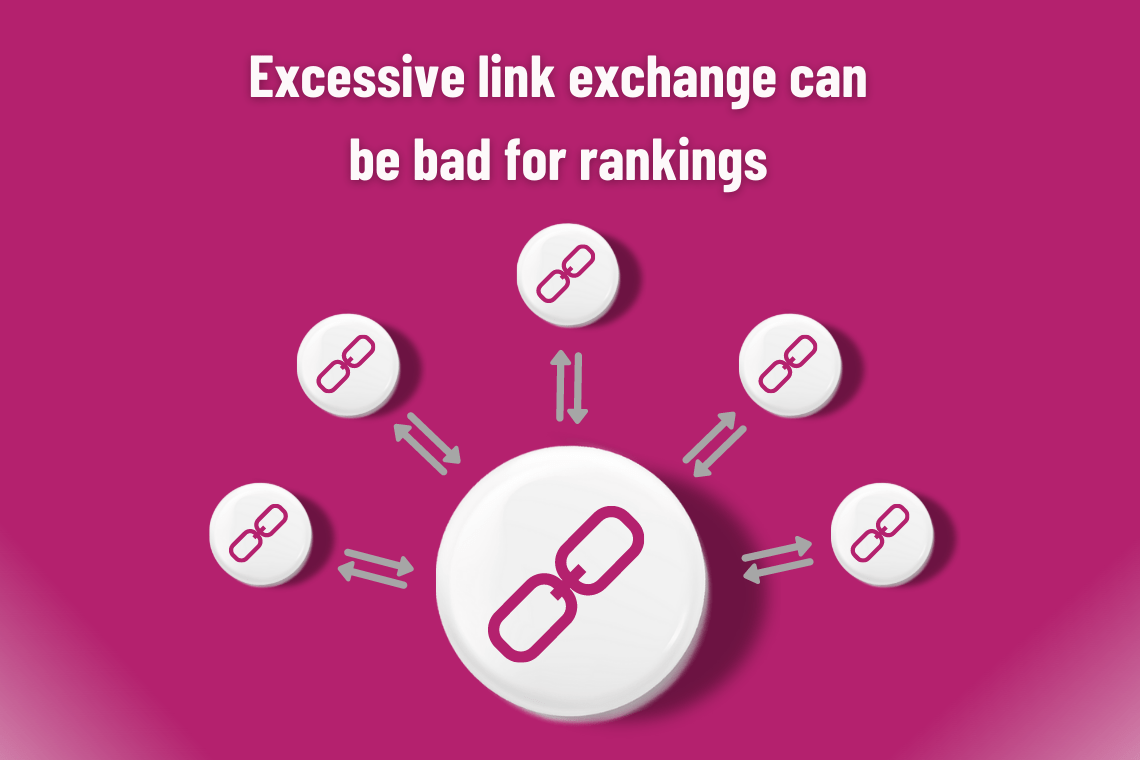Links are a basic and essential part of SEO. The early ranking algorithm of the Google search engine was based on the PageRank algorithm, which works by counting the number of quality links on a page to determine the importance of the website to rank it.
A link is a clickable object on a webpage that directs from one page to another. They may appear as text, buttons or images. Based on the destination of the link, they are classified as Internal, Outbound and Inbound links.
Internal links are links that navigate you to another page of your website. These links allow users to stay longer on your site. As a result, it increases dwell time and boosts ranking. Outbound links are links that navigate you to another website, whereas Inbound links are links from other websites to your website. Therefore, more links will increase your website’s credibility and improve rankings.
Now that we have understood the links and their importance, let us move on to link exchange and how it works in SEO?
LINK EXCHANGE – PROS AND CONS
Link exchange is defined as the practice between websites to exchange links with each other to increase visitors and page ranking. It is also referred to as Swapping backlinks, Reciprocal links, or Link partnering.
Link exchange is an ancient link-building strategy to achieve improved website ranking. As we know in digital marketing, link popularity plays an important role. Webmasters and many other website owners will use link exchange for link building, which helps in promoting their websites to the major search engines.
Link exchange is not effective in all cases. They have the disadvantage of distracting prospective customers to other websites before they thoroughly explore your website.
IMPACT ON SEO
The purpose of Link exchange techniques is to gain an advantage on rankings. Receiving a high-quality backlink will allow you to acquire a trust signal that will increase your website rankings and traffic to stand over the competition.
Link exchange generates many quality links pointing to your website, therefore, it increases your link popularity, which is one of the most important ranking factors in successful search engine marketing and SEO campaigns.
There are thousands of website owners looking out for exchanging links from other webmasters and bloggers to generate impressive results in their search rankings. Moreover, major companies and publications also practice link exchanges in a low-key way by link exchanging schemes. The link exchange services and directories have gradually developed and the era of automatic link generation has begun. Since then, Google has reconsidered its opinion regarding fake links and the use of such traffic.

Things have changed and now link exchange can adversely affect your website rankings and reputation if used excessively. Google’s John Mueller mentions that it’s a terrible idea to engage in excessive link exchanges, automated programs for link building and paid linking activity. Google highly discourages website owners taking advantage of link exchange strategy excessively for search engine rankings without making any effort on their part. It also considers it as a violation of Google’s webmaster guidelines.
Here are the best ways to handle link exchange to deliver a positive impact on your website’s SEO rankings.
#1. Partner up with websites that are rich in traffic.
#2. Pick websites that have top-quality content related to your business that can be useful to your visitors and will make an amazing link exchanging partner.
#3. Choose websites that aren’t your closest competitors and maintain high-quality websites with good SEO scores.
#4. Connect with the websites that rank for similar keywords as you do.
CONCLUSION
Link exchange is like a double-edged sword, if practiced correctly, it can be a powerful tool to boost your SEO scores. It is an immense opportunity to quickly acquire new customers to your website, but with certain limitations. Legitimate link exchange is a long-term effort, gained naturally with the merit of your content.
To watch the latest Google SEO Office Hours, please check out the video below:

Durga
About The Author…
Durga has a master’s degree in engineering. Technological advances in digital space interest her a lot. Digital marketing is her forte and she passionately follows latest trends in the digital marketing space. She has written many trending articles on various social media platforms. Her areas of interest include SEO Optimization, structured data, SMM, Keywords research and analysis etc. She is focused, resourceful and dedicated.

